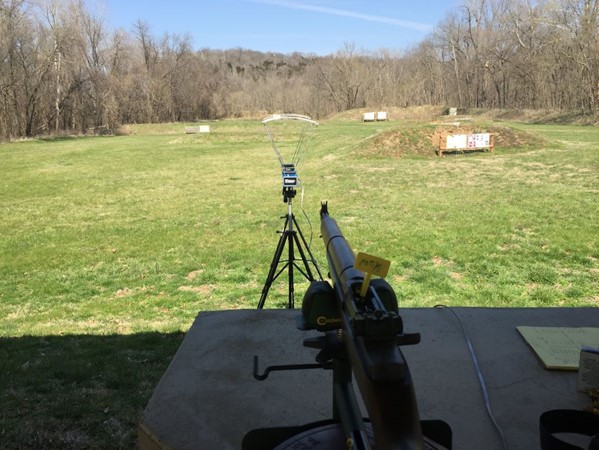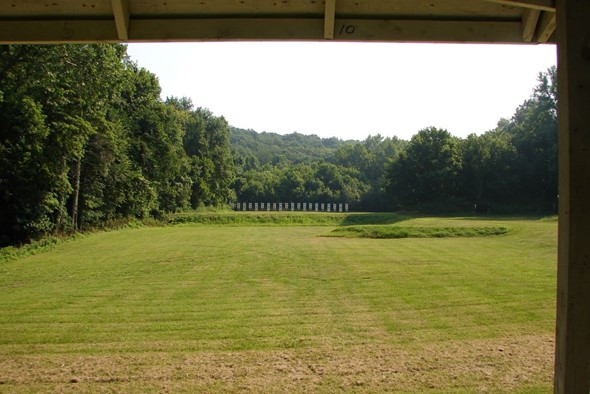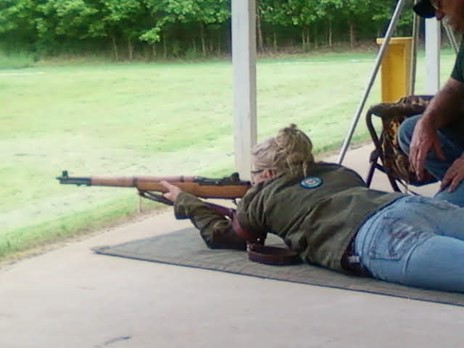
By Lee Williams
SAF Investigative Journalism Project
During its heyday, the Glendale Shooting Club located near Robertsville, Missouri, was home to shotgun, silhouette, high-power rifle, handgun and Cowboy Action shooters. It hosted regular matches, including the Bauer Brothers Cup, and had around 400 active members.
Today, the clay shooting is long gone as are the matches, and the members – only around 140 remain – are writing personal checks to subsidize a convoluted and confusing legal fight that began 40 years ago.
The stakes are extremely high. If the club loses its legal battle, Missouri’s shooting range protection act could be declared unconstitutional, which could impact every firearm range in the Show Me State.
“If we lose, the ballgame is over,” said Glendale Shooting Club treasurer Jim Hopkins. “It would be as bad as losing our preemption statute, which protects every pro-gun law in the state. It’s up to the courts now.”
David Bohm, a St. Louis-based attorney who has represented the Club for the past several years, agrees.
“It could open the door to potential injunctive actions against other ranges,” Bohm said. “We’re aware of other ranges where houses are even closer to the firing line.”
Hopkins has personally donated more than $30,000 to the legal battle. He estimates the Club has spent more than $200,000 to defend its members’ Second Amendment rights.
The Glendale Shooting Club was founded in 1928 by high-minded wealthy families from the St. Louis area who wanted a safe place to recreate with their firearms. Over the years, the club moved several times until 1976, when it purchased 107 acres in eastern Franklin County.
Problems began with the neighbors, Raymond and Veronica Racine, who since 1967 had owned 78 acres adjacent to the Club. In 1983, the Racines sued the Club in circuit court primarily over noise. In their complaint, the Racines claimed the Club used the land for “target practice, local, regional and national shooting matches conducted with automatic weapons, handguns, shotguns and high powered rifles.” The Racines alleged the noise occurred “on a daily basis at all hours of the day and night.” The couple asked the court to permanently stop or enjoin the club from shooting on its property.
The court agreed with the Racines, finding that “the use of the (Club’s) land as described by the evidence constituted an abatable continuing temporary nuisance, to the extent that it substantially impaired the right of the Plaintiffs to peacefully enjoy their own adjoining land. The sustained noise found by the court to be a nuisance did cause actual inconvenience and physical discomfort to the Plaintiffs.”
Rather than ordering the Club to cease its operations as the Racines wanted, the circuit court tried to split the baby, but the decision was terrible – a hellbroth of conditions no club would want and few could survive. In its injunction, the court ordered the following:
- No shooting before 9 a.m. or after dark or 6 p.m.
- No more than 10 shooting matches per year, and only two high-power rifle matches.
- No more than two matches in any one month, and only one on a Sunday.
- No more than 8 persons can shoot at one time during a pistol match.
- No more than 8 persons can shoot at any time, club-wide, other than during a rifle match.
- No shooting of shotguns or firearms of a caliber greater than a .22 except between 9 a.m. and 6 p.m. on Tuesdays, Thursdays, and Saturdays, and during a rifle match.
For a club that prided itself on its matches, the injunction was damning, and the requirement that only eight members could shoot at one time significantly impacted its daily operations. After all, the Club has five ranges: one for pistols and .22 caliber rimfire rifles, three multi-purpose 50-yard ranges and a 200-yard rifle range. The eight-shooters-only rule caused membership to plummet, and it never recovered.

Missouri Range Protection Act
In 1988, one year after the permanent injunction was issued, the Club falsely believed Missouri’s General Assembly had come to their rescue after it passed a range protection statute, which granted firearm ranges “immunity from nuisance and trespass actions and prohibit courts from enjoining the use or operation of firearm ranges on the basis of noise or sound emission.”
In 1989, one year after the statute became law, the Racines sold their 78-acre property to William and Jeri Landolt.
To be clear, the Landolts purchased the property knowing full well there was a shooting range next door.
Rather than filing suit immediately after the range protection act became law, Hopkins said the club waited until the language was clarified. When passed, the act only covered “normal use” of a shooting range.
“That was a problem for us, since the court could have found that for us normal use included the injunction,” Hopkins said. “By 1998, the ‘normal use’ language had been removed.”
In 1998, the Club asked the circuit court to dissolve the permanent injunction, arguing that it had “been rendered absurd and unjust” by the state’s range protection act. The Club added that they had made major renovations to abate the noise. The circuit court dismissed the Club’s motion to dissolve the injunction and the Club appealed.
In 2000, a Missouri court of appeals reversed the lower court’s judgement, but not on the merits of the Club’s motion. The appellate court said the circuit court erred when it concluded that the range protection statute did not apply because of the injunction. The court remanded the case back to the circuit court with the order that the court should consider the effect that the state statute had on enforcement of the injunction. The circuit court was told to have an evidentiary hearing to see if the injunction had been made “absurd or unjust” by the Club’s noise abatement modifications. However, both the Landolts and the Club opted for a settlement agreement instead, which precluded “further litigation over the injunction for a period of not less than 20 years.”
“The Club ran out of money,” treasurer Hopkins said. “That’s why we settled, and we needed at least 20 years to raise money for the next round of litigation.”
Agreement ends
In 2021, after the 20-year settlement agreement expired, the Club went back to the circuit court and asked the judge to dissolve the permanent injunction pursuant to the state’s range protection act. The Landolts countered by arguing that the act constituted a “taking” of their property rights “without compensation, and is therefore unconstitutional pursuant to Art. I, §26 and §28 of the Missouri constitution, and the 5th and 14th Amendments to the United States Constitution.”
The judge ruled in favor of the Club and set aside the injunction. However, the Landolts appealed again by challenging the constitutionality of the state’s range protection act.
The case made its way to the Supreme Court of Missouri, but rather than clarifying the lower courts’ decisions, the high court punted and dodged the constitutional question. On March 21, 2023, the justices vacated the circuit court’s decision and remanded the case back for addition proceedings, because the Club “relied exclusively on a change in law to support its motion for summary judgment and did not assert uncontroverted material facts demonstrating the change in law rendered the continued enforcement of the injunction inequitable, the circuit court erred in entering summary judgment.”
“I will state that if the court had addressed this (constitutional) issue, it likely would not have upheld that argument,” attorney m Bohm said.
Today, the Landolts and the Club are preparing for trial in circuit court, which could happen as soon as April 2025. The Landolts want to argue their case if front of a jury. Both sides have started depositions. Meanwhile, the Club erected a noise barrier and is conducting expensive sound testing.
“They are doing everything they can to reduce the level of noise at the Landolts’ home,” Bohm said.
Meanwhile, the injunction remains in effect. Jeri Landolt, whose actual last name is Cashin except in court documents, has been keeping a log of alleged violations.
“She complained that we once started shooting at 8:58 a.m., but our members said they started at 9 a.m. per the injunction. It’s all a matter of whose watch was right,” Hopkins said. “She also complained that the Franklin County Sheriff’s SWAT team once trained until 6:05 p.m. – five minutes past the time limit.”
David L. Baylard, a Union, Missouri-based attorney who represented the Landolts before the Supreme Court of Missouri and in the current litigation, did not respond to calls or emails seeking his comments for this story.
Future needs
The Glendale Shooting Club has established a GiveSendGo page they hope will raise additional funds for its upcoming legal battles.
Said Hopkins: “For almost 40 years Glendale’s members have fought to get this injunction lifted. The club is a shadow of what it once was because of it, but our members are not giving up. They’ve put years of blood, sweat and tears into it, spending just about every single dollar they’ve had. We’ve come close a time or two but each time the courts have shot us down. And now it’s an even bigger issue. We’ve had to defend a state statute, one saying you can’t enjoin a range like ours, from being declared unconstitutional. People don’t realize it’s much larger than just our club. There are over 40 states with similar statutes protecting shooting ranges. Depending on where this goes, the impact on gun owners all over the county could be a disaster. It’s something you try not to even think about.”

The Second Amendment Foundation’s Investigative Journalism Project wouldn’t be possible without you. Click here to make a tax-deductible donation to support pro-gun stories like this.